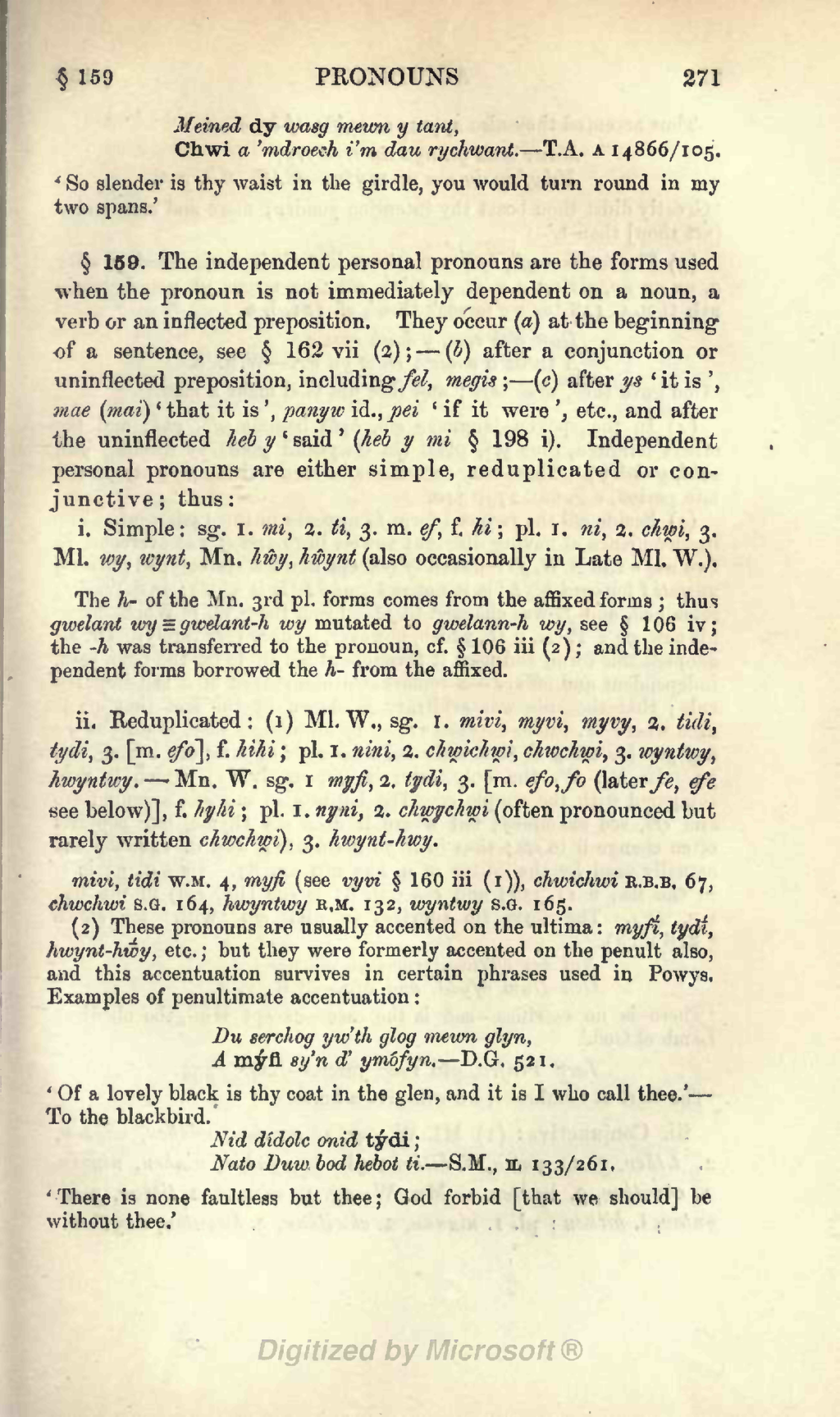- Meined dy wasg mewn y tant,
- Chwi a ’mdroech i’m dau rychwant.—T.A. a 14866/105.
‘So slender is thy waist in the girdle, you would turn round in my two spans.’
§ 159. The independent personal pronouns are the forms used when the pronoun is not immediately dependent on a noun, a verb or an inflected preposition. They occur (a) at the beginning of a sentence, see § 162 vii (2);—(b) after a conjunction or uninflected preposition, including fel, megis;—(c) after ys ‘it is’, mae (mai) ‘that it is’, panyw id., pei ‘if it were’, etc., and after the uninflected heb y ‘said’ (heb y mi § 198 i). Independent personal pronouns are either simple, reduplicated or conjunctive; thus:
i. Simple: sg. 1. mi, 2. ti, 3. m. ef, f. hi; pl. 1. ni, 2. chw̯i, 3. Ml. wy, wynt, Mn. hŵy, hŵynt (also occasionally in Late Ml. W.).
The h- of the Mn. 3rd pl. forms comes from the affixed forms; thus gwelant wy ≡ gwelant‑h wy mutated to gwelann‑h wy, see § 106 iv; the ‑h was transferred to the pronoun, cf. § 106 iii (2); and the independent forms borrowed the h- from the affixed.
ii. Reduplicated: (1) Ml. W., sg. 1. mivi, myvi, myvy, 2. tidi, tydi, 3. [m. efo], f. hihi; pl. 1. nini, 2. chw̯ichw̯i, chwchw̯i, 3. wyntwy, hwyntwy.—Mn. W. sg. 1 mỿfi, 2. tỿdi, 3. [m. efo, fo (later fe, efe see below)], f. hỿhi; pl. 1. nỿni, 2. chw̯ỿchw̯i (often pronounced but rarely written chwchw̯i), 3. hwynt-hwy.
mivi, tidi w.m. 4, myfi (see vyvi § 160 iii (1)), chwichwi r.b.b. 67, chwchwi s.g. 164, hwyntwy r.m. 132, wyntwy s.g. 165.
(2) These pronouns are usually accented on the ultima: mỿfī́, tỿdī́, hwynt-hw̄́y, etc.; but they were formerly accented on the penult also, and this accentuation survives in certain phrases used in Powys. Examples of penultimate accentuation:
- Du serchog yw’th glog mewn glyn,
- A mỿ́fi sy’n d’ ymófyn.—D.G. 521.
‘Of a lovely black is thy coat in the glen, and it is I who call thee.’—To the blackbird.’
- Nid dídolc onid tỿ́di;
- Nato Duw bod hebot ti.—S.M., Ỻ 133/261.
‘There is none faultless but thee; God forbid [that we should] be without thee.’
